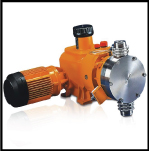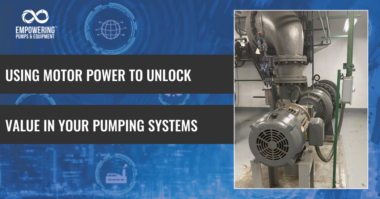Pumps are the heart of wastewater treatment systems and pump metering chemicals is critically imperative to required wastewater treatment!
Different types of pumps are designed for unique wastewater treatment pump applications. Centrifugal pumps are used for general wastewater pumping. Positive Displacement pumps are used for pumping heavier solids. Chemical Metering Pumps are used for pump metering chemicals into wastewater for treatment.
Metering pumps are designed to add specific chemical amounts to achieve exact wastewater treatment result results.
Pumping chemicals into wastewater is mostly an automated function achieved by also employing controllers by using a continuous feedback signaling system by sending electronic signals to activate pumps on and off and regulate the amount of chemical actually pumped.
A properly applied continuous feedback control system by using properly selected instrument and pump or pumps as well as selecting appropriate chemical injection location, proper wastewater mixing, and using the best location for measuring wastewater conditions affected by the chemical metering system are all critical aspects of cost effective and reliably consistent wastewater treatment.
Pump and Instrumentation Selection:
The pump selected for the chemical feed metering application must be adequately sized to meet the maximum instantaneous pumping requirements including the volume of wastewater and the amount of chemicals required.
The controller selected for the chemical feed metering application must be adequate to regulate the pump metering of chemical to maintain a very tight operational result variance.
An actual application of pumping chemical for pH control is detailed below:
Actual Application Variations:
Observe the actual LED displayed results on the controller.
Operating with a desired pH set point of 8.2, actual results below 8.1 and above 8.3 are likely cost ineffective and unreliably consistent wastewater treatment.
Existence of these conditions will benefit with specific action.
Specific action including confirming the chemical injection location is appropriate, wastewater is properly mixed, and the best location is used for measuring wastewater conditions; the pump selection and the controller type is also crucial to having a prescribed ongoing treatment result.
Using a PID Controller is very effective regulating the volume of chemical pumped to maintain a requisite value regardless of variations of wastewater and its pH value.
PID theory is made easy by optimizing wastewater treatment performance with modern process controllers.
A PID controller is probably the most widely-used type of feedback controller.
PID stands for Proportional-Integral-Derivative, referring to the three terms operating on the error signal to produce a control signal.
PID controllers are the most well-established class of control system.
Proportional control gives a change in output that is proportional to the deviation of the process variable from the set point.
The range over which the output is adjusted from 0 to 100% is called the proportional band.
The proportional band is expressed as a percentage.
Using appropriate devices will allow for optimum results.
Evaluate all aspects of the treatment process, execute the necessary changes and feel free to contact me if additional assistance is needed at TheWastewaterWizard.com.
About the Author:
Known in the industry as “Wastewater Dan,” Daniel L. Theobald, proprietor of Environmental Services, is a professional wastewater and safety consultant/trainer. He has more than 24 years of hands-on industry experience operating many variants of wastewater treatment processing units and is eager to share with others his knowledge about water conservation. (www.ConserveOnWater.com).
Theobald serves as an active consultant for industries looking to achieve and maintain improved wastewater treatment at reduced cost. He is a Lifetime Member of the Who’s Who Registry of Professionals and holds numerous certifications from wastewater management regulatory boards and professional organizations. Theobald contributed one chapter to the Water Environment Federation’s (www.wef.org) Manual of Practice # 29 (MOP-29), a technical manual resource guide for biological nutrient removal, scheduled for publication in 2013.He also authors an industry-related blog (http://TheWastewaterWizardBlog.com/).





[…] https://empoweringpumps.com/pump-metering-wastewater-chemicals-operationally-effective-and-cost-effic… […]